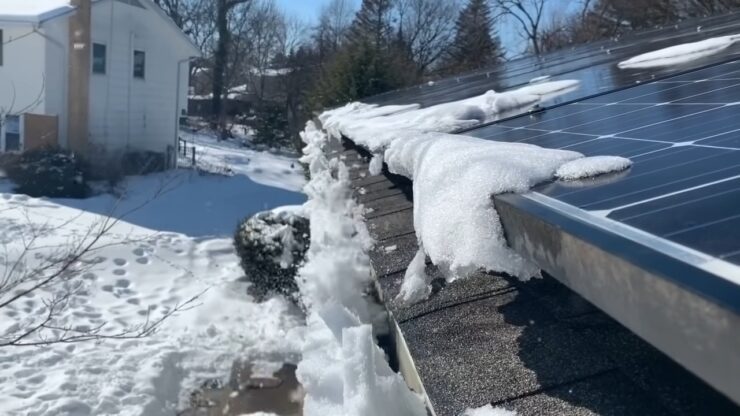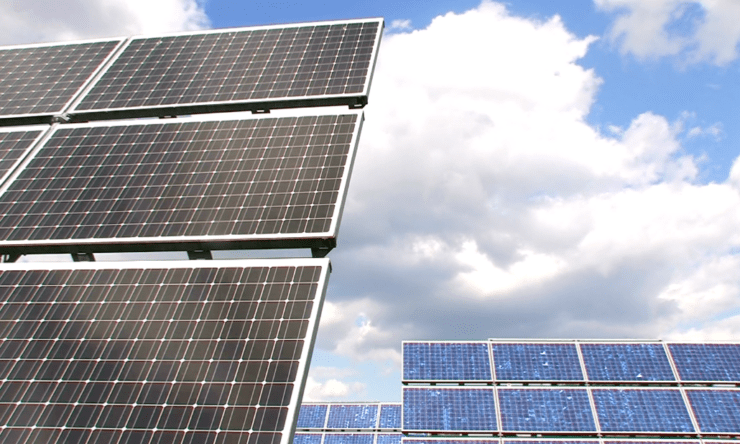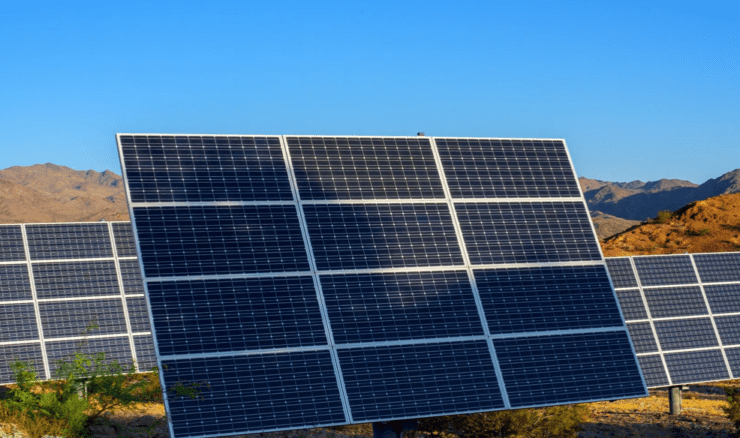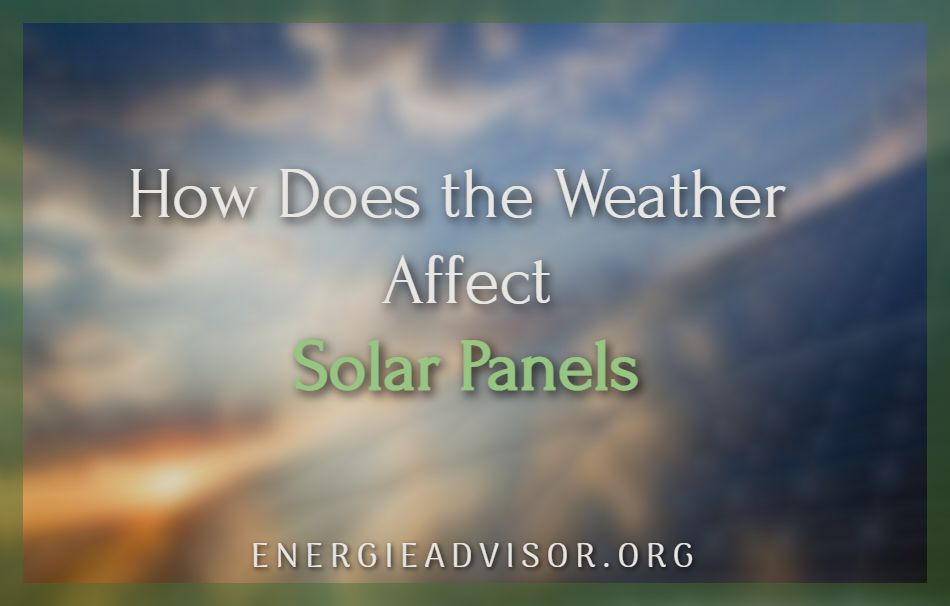There is no person who did not question the ability of solar panels to work properly when the weather is inconvenient. So what happens when we have a cloudy or rainy day?
Do they generate some power or not? Are they efficient or completely blocked? It’s finally time to find out the complete and unwrapped truth regarding this matter.
How Solar Panel Work When There Is No Sun?
We all know that solar panels are based on solar cells that absorb sunlight and transform it into usable electricity. Every manufacturer says that it is extremely important to place the solar panel in a way that will guarantee it’s always exposed to the sun.
That’s logical since it needs as much possible sunlight in order to do its job. So what happens when there is no sun one day? What if the storm took over the sky?
The answer is – nothing happens, solar panels will continue to convert photons (small particles of the sun’s light) into electrons or direct electricity. There is a huge misconception that the solar system won’t be able to produce power we need if there is no direct sunlight.
It can actually be because solar panel cells don’t necessarily need direct contact with sunlight, they just need those photons emitted by the sun.
So even if the day is super cloudy, photons will be spread into the atmosphere, and the solar panels will be able to absorb them and generate electricity. But you should know that the solar system won’t be as efficient during those days as it would be on a bright sunny day.
It will have less energy absorption. If there are clouds in the sky, your solar panels will work with a maximum of 25 percent capacity, so there definitely will be a difference in power output.
How Different Weather Impact the Solar System?
Modern-day solar panels are built in a way that allows them to withstand different and extreme weather conditions like heavy rain, snowstorm, hail, severe wind, and extreme heat. When they are constructed, they are subject to testing, and they need to get Underwriter’s Laboratories (UL) certification in order to claim they are resistant to bad weather and extremes in that sense.
But, you need to know that that certificate doesn’t guarantee every solar panel has the same quality and durability. Most solar panels should withstand wind up to 140 MPH, and they can only benefit from cold temperatures because the whiteness of snow will reflect light and improve their performances. It’s just important they are clean and not covered with loads of snow.
Although they are built to last and to face different challenges, solar panels can be damaged by hail or storm, for example. But in that case, you should be covered with your warranty or insurance policy.
And let’s not forget about the most surprising fact – extreme hot climates can lower the efficiency of solar panels! If the temperature is above 87 degrees, you can expect that exactly this happens. Every degree above this number will lower their productivity by one percent.
Does Solar Panel Work at Night?
No, solar panels don’t have the ability to generate electricity during the night because they need sunlight in order to do that. They tend to go to the sleep mode when this part of the day comes along and to stay that way until the sun begins to rise again.
Some experts, however, claim that solar panels can work based on some other light sources like the moon or some strong street lights, but it is negligible since the output will be extremely low.
Do Solar Panels Work in the Rain?
Solar panels are built in a way that allows them to use direct and indirect sunlight in order to generate electricity. That means that although they are most efficient when the day is bright and shiny, they will be able to continue with this process even if the sun is hidden by the rainy clouds.
So yes, they can work in the rain, the question is just how much power they will generate in that case. There is a belief that rain is actually good for the solar system because it will naturally wash the dust and every other piece or particle of dirt off them.
How Does Snow Affect Solar Panels?

One of the solar myths is that solar panels do not work during the winter. The actual truth is they can still do their job, especially because the whiteness of the snow will reflect light and improve the solar system’s performance.
Certainly, you will generate less power during these cold months that you will in the summer, but that’s not the reason to decide not to install them. The problem may occur when the huge amount of snow falls and traps solar panels underneath – at that point, they will not be able to work, so you will have to get up there and remove deposits of snow as soon as possible.
Solar Panels After Hurricane
This natural force can cause some serious damage to your entire house, not just the solar system. The power of the wind can dislocate your solar panels, separate them from the roof and rip some wires, but the insurance will most likely cover that.
Solar panels are designed to withstand winds of approximately 140 MPH, but that’s just, generally speaking, every brand has its own, more specific assessments in this matter.
Another thing you should worry about is water exposure since it can affect the wiring. But the thing you have to know is that solar panels are much more durable and resistant that they look like, that’s one of the reasons they cost so much.
How Durable Are Solar Panels?

If you decide on purchasing a high-quality solar system, you won’t have to worry about it. Those solar panels will be able to resist a lot of inconveniences and stay bulletproofed to weather impact.
Usually, top-rated solar systems are placing their durability as the number one attribute, right next to their efficiency, and they will probably degrade extremely slowly. Most manufacturers claim their products will look like they are new for years if properly maintained, and that they will produce 92 percent of power up to 25 years of usage.
It is also important to say that even though solar panels look very fragile and super sensitive, they are actually used as roof protectors, regarding extreme weather conditions. They can hold on to a significant amount of snow, for example, but you should remove it as soon as you can in order to enable them to work again.
What Is a Proper Installation That Will Withstand Bad Weather?

You really need to make sure your solar system is installed and mounted precisely as it should, to make sure it will not be destroyed by an accident or some weather disaster. You really don’t want to risk your entire investment for some extra money you will pay professionals to do this for you, or some extra time you will devote yourself to study the installation manual.
If you decide on going with an installation company, make sure they are highly recommended and reputable in this industry. Because not all of them know all new technologies solar systems are built on, or they are not well informed about local wind movements and other standard or exceptional climate conditions.
But if, on the other hand, you are certain you can do that with your own hands and knowledge, you have to follow the specific manual, created by the manufacturer.
Also, let’s not forget about regulations (local, federal, and state) you have to take into consideration when doing this sort of thing or about the perfect angle you need to place a solar system to make sure they will deliver with full capacity.
Some people might find it a challenge the advanced wiring systems, or the fact they need to check if the roof of the house is suitable and strong enough to hold the whole solar system.
Conclusion
We understand that these questions are some of the first ones that come up in your mind when you decide to go solar. And that’s absolutely expected. The fact solar panels work with the help of sunlight does impose the question of bad weather and its influence on the solar system.
We concluded that panels would continue to transform the power of the sun into electricity on a cloudy day as well, but it is not negligible that their efficiency will be significantly lower. Just like with every other renewable source and its usage, this, too, has its flaws.
But the fact is the advantages are so big that this is something you can definitely live with. Because on those super sunny days, your solar system will produce more electricity than you need, and all that surplus can be stored and saved for days when they just can’t deliver.

